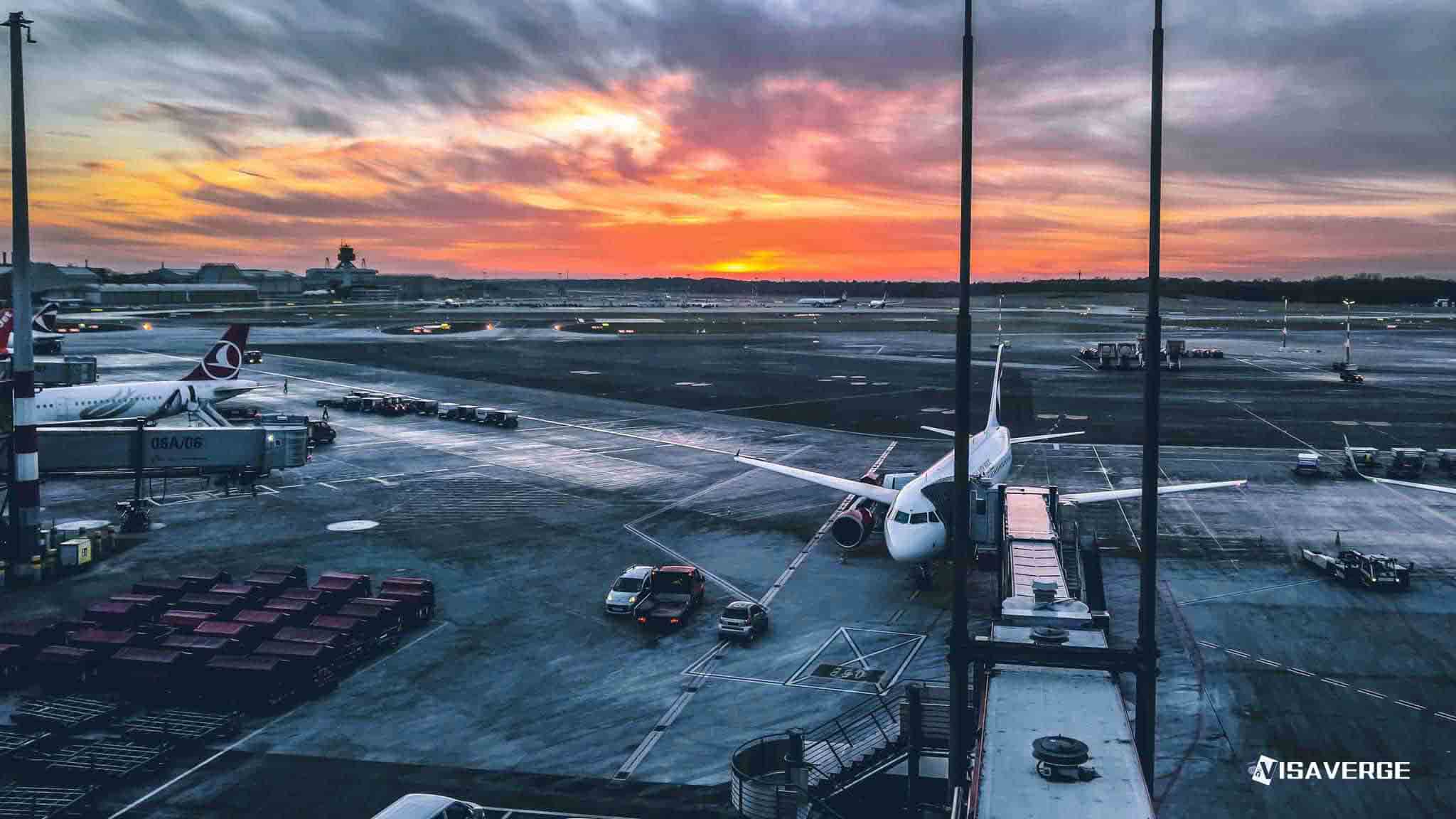(SOUTHERN CALIFORNIA) Deportations of Southeast Asian immigrants have surged in 2025 under President Trump, and Southern California sits at the center of the fallout. Community groups report that in Los Angeles and Orange counties, people with long-standing removal orders—many issued decades ago—are being detained during routine ICE check-ins, often with little warning to families.
Advocates say the scale and speed of these detentions mark the sharpest escalation in years and are tied to renewed federal pressure on Cambodia, Laos, and Vietnam to accept more deportees.

Who is being targeted and why
Since early 2025, the increase has been most visible among immigrants with prior criminal convictions, including old offenses already resolved in state courts.
- In practice, this can mean a father who grew up in the United States 🇺🇸 after fleeing war as a child and who served a sentence in the 1990s may now be taken into custody at an ICE office and placed on a fast track for removal.
- Community coalitions estimate that “dozens” are detained monthly in the region, a pattern mirrored in other hubs with large Southeast Asian refugee populations.
- Nationwide, over 16,000 Southeast Asians live with final deportation orders.
- As of November 2024, 1,747 Cambodian citizens in the U.S. had final removal orders, with similar concerns for Lao, Hmong, and Vietnamese communities.
ICE officials say enforcement actions are based on immigration status and criminal history, not ethnicity. Yet attorneys and advocates point to data showing Southeast Asians are 3–5 times more likely to be deported for old convictions than other groups.
They argue that using decades-old orders to justify fresh detentions—often at scheduled ICE check-ins—raises basic questions about fairness and due process.
Policy pressure and diplomatic steps
The administration has revived and expanded tools last used during prior crackdowns, pressing Southeast Asian governments to issue travel documents and accept deportees more quickly. This effort includes:
- Threats of sanctions and direct diplomatic engagement to speed removals.
- Stepped-up U.S. outreach in 2025 aimed at clearing long backlogs of final orders that were previously on hold.
International voices have pushed back. ASEAN Parliamentarians for Human Rights has condemned the crackdown, calling on regional governments to provide consular access and to advocate for fair proceedings.
Their position centers on human dignity and due process, especially for people who arrived as refugees, built lives in the United States 🇺🇸, and have minimal ties to their countries of birth.
Community leaders in Southern California have drafted diplomatic appeals urging home governments to:
- plan for reintegration,
- provide legal aid, and
- recognize the special circumstances of those displaced as children.
According to analysis by VisaVerge.com, the current surge mirrors past enforcement cycles but is broader and faster. Community groups warn families to prepare well before any ICE appointment, because routine check-ins have increasingly turned into custody and quick transfers to detention.
Community response intensifies in Southern California
Local organizations—SEARAC, Asian Americans Advancing Justice Southern California, and the Southeast Asian Freedom Network among them—have activated rapid response systems.
- Volunteers staff hotlines.
- Attorneys run legal clinics.
- Mutual aid teams deliver rent help, food, and transportation for families suddenly missing a wage earner.
These networks coordinate across counties so they can move quickly when someone is detained at a check-in or during a home visit.
Recommended immediate steps from community groups
- Seek legal counsel before any ICE check-ins.
- Prepare a safety plan, including caregiver authorizations, powers of attorney, and a list of emergency contacts.
- Carry key documents.
- Bring identification and any court or immigration records that a lawyer recommends.
- Share copies with a trusted person.
- Contact your consulate if detention occurs.
- Consular staff can help with documents needed during detention and, if removal proceeds, with travel and initial reintegration support. Resources vary by country.
- Connect with rapid response networks.
- They can track where someone is held, mobilize support for children or elders, and link families to mutual aid.
Families can look up detention status on ICE’s official online tool, the ICE Detainee Locator, available at: https://locator.ice.gov/odls/#/index. This government resource helps confirm custody location and facility transfers after arrests tied to ICE check-ins or other enforcement actions.
Public advocacy and solidarity
Public advocacy has grown. Asian American leaders in Southern California caution that large-scale enforcement often spreads across communities, and they stress solidarity with Latino neighbors who have long faced similar sweeps.
Organizers are:
- planning more know-your-rights events,
- urging people to document cases that raise concerns about equal protection, and
- calling on supporters to show up for court and to contact lawmakers.
The message is simple: reject stigma, support affected families, and increase public oversight.
Human impact and reintegration challenges
The human impact is stark. Many facing removal are long-term residents who arrived as refugees after war and genocide in Southeast Asia.
- They are parents to U.S. citizen children, caregivers to elderly relatives, and breadwinners in multigenerational households.
- Deportation brings sudden family separation, lost income, and deep psychological stress.
- For those sent to countries they barely know, reintegration is hard: no identification, no housing, and few job prospects.
Community groups are pressing for:
- more funding to help with housing, identification, and employment,
- trauma counseling for parents and children left behind, and
- robust reintegration support from home governments.
Legal and policy challenges ahead
Detaining people at scheduled ICE check-ins and enforcing decades-old removal orders has prompted attorneys to explore challenges based on:
- due process, and
- equal protection.
Some legal teams are preparing filings arguing that the current focus on Southeast Asian communities—given their refugee histories and the age of many convictions—undercuts basic principles of justice and rehabilitation. Others are seeking congressional oversight.
Advocacy coalitions say they will press for legislative fixes that add guardrails around old orders, especially for refugees who arrived as children and have built families and careers in the U.S.
This enforcement shift did not appear suddenly. Before 2025, deportations of Southeast Asians were less common, often stalled by diplomatic resistance and indefinite stays on removal orders. That changed as the White House embraced a harder line and elements of the “Project 2025” policy blueprint gained influence inside the federal government.
Community leaders fear that the same framework could expand surveillance and shrink civil rights protections for Asian American and Pacific Islander communities if left unchecked.
Looking forward
- Removals are expected to continue unless policy changes or court decisions slow the pace.
- International diplomacy remains uncertain; while some ASEAN governments may increase consular help, it is not clear whether that will include programs strong enough to support housing, work, and long-term reintegration for deportees.
- At home, legal battles and congressional pressure could shape what happens next.
For now, families in Southern California are moving fast to prepare. The guidance is consistent across organizations:
- Do not go to ICE check-ins alone; talk to a lawyer first.
- Put emergency plans in writing.
- Keep numbers for rapid response hotlines close at hand.
Community groups continue to call for public support, warning that the stakes—freedom, family unity, and basic dignity—have rarely felt higher.
This Article in a Nutshell
Southern California communities face a 2025 surge in deportations of Southeast Asians. Rapid-response networks mobilize legal aid, hotlines, and mutual aid. Advocates warn decades-old removal orders are being enforced during routine ICE check-ins, causing family separations, urgent court challenges, and calls for diplomatic reintegration support from Cambodia, Laos, and Vietnam.







